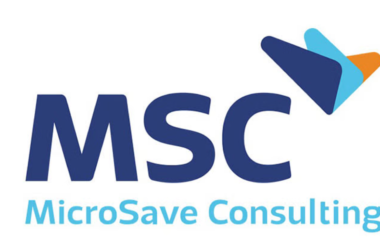
In the wake of ChatGPT’s viral success last year, the potential applications of artificial intelligence (AI) have captured the attention of many companies such as DeepMinds. Promises of superhuman virtual assistants, tutors, lawyers, and doctors have been made. However, what if AI could also empower superhuman chemical engineers? London-based startup Orbital Materials aims to do just that. The company is leveraging generative AI, the same method used in tools like ChatGPT, to expedite the development of clean energy technologies. Their goal is to enhance computer models to the extent that they can identify optimal formulas for sustainable jet fuel and rare-earth mineral-free batteries.
Orbital Materials recognizes the pressing need for clean energy solutions in today’s world. With increasing concerns over climate change and depleting natural resources, the demand for eco-friendly alternatives has never been higher. Traditional approaches to developing clean energy technologies can be time-consuming and costly. This is where Orbital Materials sees an opportunity to revolutionize the process with the help of AI.
Generative AI, which powers tools like ChatGPT, enables machines to generate new content or data by learning from existing examples. By applying this technology to the realm of clean energy, Orbital Materials aims to create computer models that can simulate and analyze various chemical reactions, ultimately identifying the most efficient and sustainable formulas for specific applications.
One area of focus for the startup is sustainable aviation fuel. Orbital Materials aims to use AI to identify innovative combinations of raw materials that can produce jet fuel with reduced carbon emissions. By simulating numerous reactions and testing different variables, the AI-powered models can accelerate the discovery of optimal formulas that minimize environmental impact. Such advancements could play a significant role in reducing greenhouse gas emissions from the aviation industry, a sector known for its substantial carbon footprint.
Another key area of interest for Orbital Materials is the development of batteries that do not rely on rare-earth minerals. These minerals, while valuable for various technologies, are often sourced from ecologically sensitive regions and can contribute to environmental degradation. By utilizing generative AI, the startup hopes to uncover alternative materials and compositions that can achieve the same level of battery performance without relying on rare-earth minerals. This could have far-reaching implications for the production of clean and sustainable energy storage solutions.
The integration of AI in the clean energy sector has the potential to revolutionize the way new materials are discovered and optimized. Traditionally, chemical engineers relied on time-consuming trial-and-error methods, making incremental adjustments and conducting extensive laboratory experiments. With the aid of generative AI, Orbital Materials seeks to expedite this process by narrowing down the options and identifying the most promising candidates for further development.
While the concept of AI-powered chemical engineering holds immense promise, there are challenges to overcome. Ensuring the accuracy and reliability of AI models is crucial, as any errors or biases in the training data could lead to suboptimal or potentially harmful results. Additionally, the integration of AI into existing research and development workflows requires collaboration between scientists, engineers, and AI experts to ensure seamless integration and effective utilization of the technology.
Orbital Materials is not alone in recognizing the potential of AI in the clean energy sector. Governments, research institutions, and companies worldwide are increasingly investing in AI-driven solutions to accelerate the development of sustainable technologies. By harnessing the power of generative AI, Orbital Materials aims to contribute to this global effort by expediting the discovery and optimization of materials that can drive the transition to a cleaner and more sustainable future.
As the startup continues its research and development efforts, the potential impact of their work on the clean energy sector is immense. By leveraging AI to enhance the capabilities of chemical engineers, Orbital Materials aims to play a pivotal role in accelerating the development of clean energy technologies. With the pressing need for sustainable solutions, the convergence of AI and chemical engineering could prove to be a game-changer, helping to shape a greener and more sustainable world for future generations.









